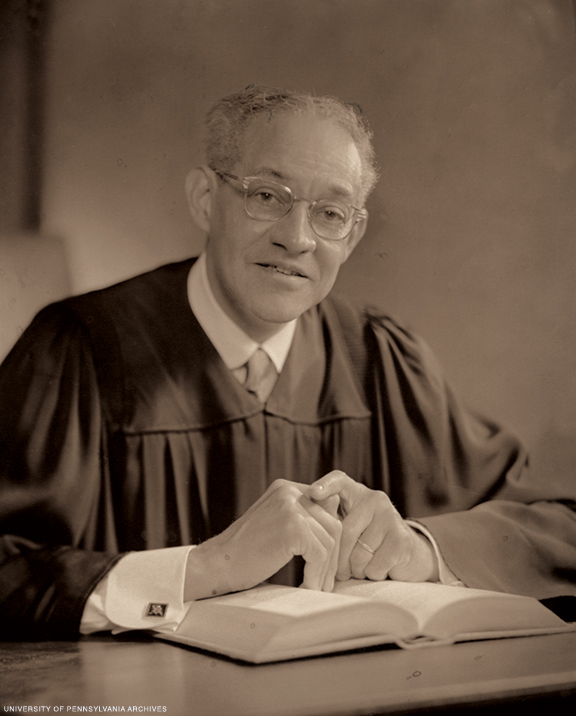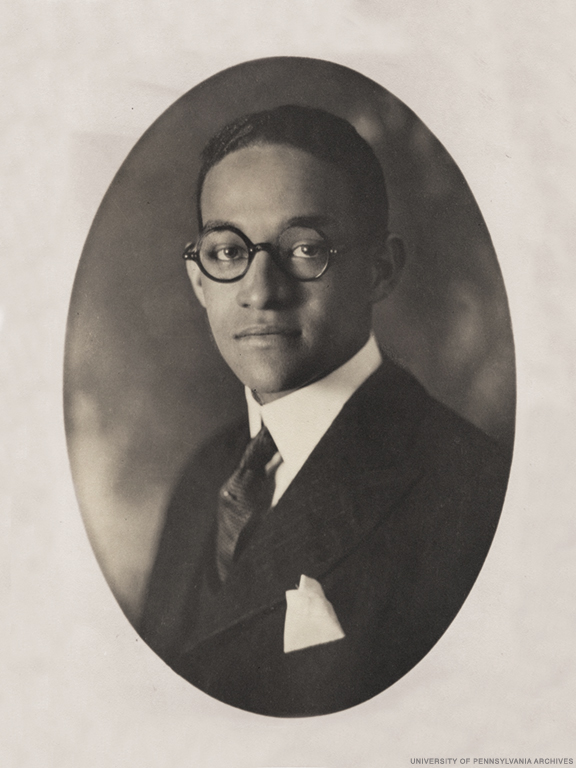
In one of his earliest cases as a young lawyer, Raymond Pace Alexander W1920 took on the retrial of Louise Thomas, a Black woman convicted of murdering a Black male police officer, successfully arguing that she had acted in self-defense. An all-white jury found her not guilty.
He went on to become one of the city’s leading civil rights lawyers, and later the first Black judge appointed to the Philadelphia Court of Common Pleas.
Alexander graduated from Wharton 100 years ago this year, and he was the first Black student to do so. Subsequently, he received his law degree from Harvard University.

Born to formerly enslaved parents who came to Philadelphia from Virginia in 1880, Alexander was one of four children in a working-class family. He began working at age seven, unloading fish on the docks, selling newspapers, shining shoes, and eventually staffing the ticket booth at the Metropolitan Opera House. He excelled academically at Philadelphia’s Central High School and earned a four-year scholarship to Wharton, where he graduated in only three years.
As a student, he became increasingly aware of civil rights issues and recounted that his “sense of injustice towards Negroes other than myself spilled to the point of public protest,” according to his biographer, David A. Canton, in Raymond Pace Alexander: A New Negro Lawyer Fights for Civil Rights in Philadelphia (2010).
Although he qualified for the honor societies Phi Beta Kappa and Beta Gamma Sigma at Penn, he was not elected into either. Fifty years later, he corrected this, when he wrote to the chapter presidents, asking them to verify that he was qualified.
It was at Penn that he met his future wife, Sadie Tanner Mossell Alexander Ed1918 G1919 Gr1921 L’27 Hon’74, the first Black woman to graduate from Penn Law. Together, they worked out of Alexander’s law firm, focusing on Black clients. He won a majority of his cases and his success garnered a substantial amount of publicity for the firm.
In 1951, he was elected to Philadelphia City Council, where he led efforts to desegregate Girard College, located in his North Philadelphia district. In 1959, he was appointed to the Court of Common Pleas. After his term expired in 1970, he continued in the role of senior judge until his death in 1974. —NP




